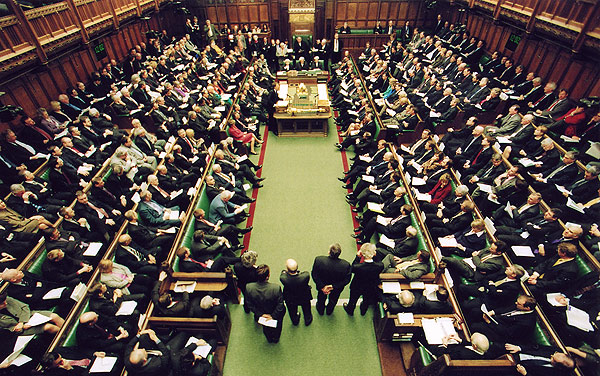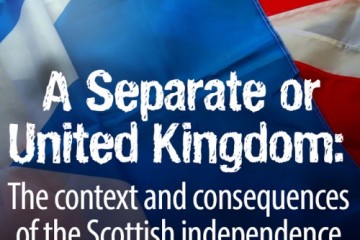This year is the 800th anniversary of Magna Carta. Following the independence referendum in Scotland, calls for a constitutional convention are widespread and growing. The Oxford University Politics Blog, together with OurKingdom, IPPR and the Department of Politics at the University of Southampton, are hosting the Great Charter Convention – an open, public debate on where arbitrary power lies in the UK today and how we should contest and contain it. What would a new Magna Carta say, and what could a new constitutional settlement for Britain look like?

A mayor for greater Bristol?
So, the Bristol Post have launched their Make Bristol Greater campaign, aimed at raising the debate about what the Bristol city region should be called and what its governance should look like. Their comment piece picks out the geographical and political constraints holding Bristol back, and for once I find myself agreeing with much of what is said in the article. Bristol is so tightly constrained by its administrative boundaries that don’t even cover the whole urban area, that decision making about strategic issues across council boundaries is like a game of ‘chance’ or ‘bluff’, based on little more than the small minded politics of jealousy and competition. We constantly compromise and reduce decisions to the lowest common denominator because we are afraid …

Events in Iceland show that a UK constitutional convention should involve politicians as minimally as possible
After the financial crash of 2008, Iceland’s prospects looked promising in two respects. First, the government decided to call the IMF to the rescue following the Central Bank’s botched attempt to get Putin’s Russia to protect Iceland from the IMF’s ‘Kiss of Death’. The Fund-supported recovery program served Iceland well. Second, up against the wall, Parliament gave in to the demands of the ‘Pots and Pans Revolution’, including the protesters’ demand for a new constitution to be drawn up by the people, not by politicians or their lawyers. From 1944, when Iceland adopted what was essentially a translation of the Danish constitution from 1849, Parliament had consistently failed to keep its promise of constitutional reform. Without the crash, there would …

Alternatives to fixed-term elections
Until the present coalition government introduced the Fixed-term Parliaments Act, in 2011, the UK Prime Minister had discretion to call elections at will, a power often used for partisan advantage. As Petra Schleiter reports in her recent post on Politics in Spires, 60% of the UK’s post-war elections were called early (i.e. more than six months before required). Further, her analysis suggests that this gave incumbents a 6% vote gain, roughly doubling the PM’s chances of remaining in office.
The Fixed-term Parliaments Act allows early elections to be called only in very restricted circumstances (either with support of two-thirds of the House of Commons or following a vote of no confidence after which no alternative government is approved by the Commons within 14 days). Schleiter points to a number of advantages of this; not only does it stop PMs from calling elections opportunistically, in order to increase their chances of victory, but depriving them of this power also prevents them from using the threat of an election to bully backbench MPs or coalition partners, thereby making the government more accountable to parliament.
However, in focusing on the advantages of fixed-term elections, Schleiter does not consider whether there are certain advantages to the old system, in which an election could be called at any moment.

The Great Charter Convention
Next year is the 800th anniversary of Magna Carta. Following the independence referendum in Scotland, calls for a constitutional convention are widespread and growing. Politics in Spires, together with OurKingdom, IPPR and the Department of Politics at the University of Southampton, are hosting the Great Charter Convention – an open, public debate on where arbitrary power lies in the UK today and how we should contest and contain it. What would a new Magna Carta say, and what could a new constitutional settlement for Britain look like?

Why the Fixed-term Parliaments Act should not be repealed
The Coalition introduced the Fixed Term Parliaments Act in 2011. Now some Conservative MPs want to repeal the Act. But Fixed Term Parliaments are good for UK democracy and the Act should stay. When the current coalition government introduced the Fixed-term Parliaments Act in 2011, the case appeared compelling: The Government believes that fixed-term Parliaments will have a positive impact on our country’s political system; providing stability, discouraging short-termism, and preventing the manipulation of election dates for political advantage. (“Government response to the report of the House of Lords Constitution Committee on the Fixed-term Parliaments Bill”, 2011, Introduction) Now Tory MPs have changed their minds. This week a group of Tory backbenchers have been mounting a campaign to repeal the …

On Devolution: England should get what England wants – it’s time to find out what that is
‘You can be proud to be English and British’, Labour party leader Ed Miliband told his party conference. Yet the Labour leader ducked the question of England’s place within the next stage of devolution, instead warning that Prime Minister David Cameron’s raising of the issue of ‘English votes for English laws’ could divide the UK.
Labour’s complaint – that the Prime Minister’s raising the question of English votes for English laws was simply a partisan ambush – is unconvincing, because it fails to answer the key questions.
Any party which wants to be part of the conversation needs to decide what it is offering to England and the English.


